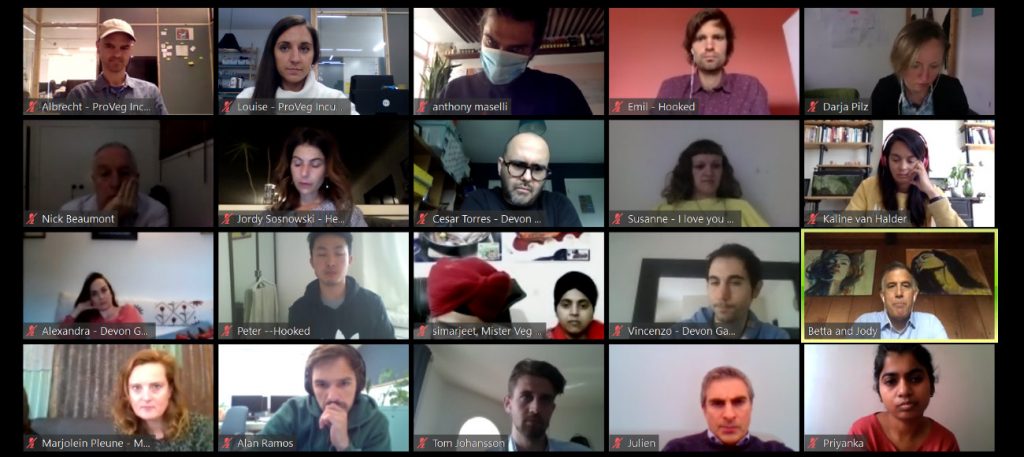Back in March, nearly the whole world went into lockdown. When the coronavirus hit, we were preparing to welcome a new batch of startups to the ProVeg Incubator programme. In fact, we were just two weeks away from launch day.
We had accepted 10 companies to join what would be our fourth cohort at the Incubator. The founders were based all over the globe, from Australia to Chile to India to Sweden.
Normally, the startup teams would travel to Berlin to participate in the accelerator programme. With international travel restricted, however, and cities the world over heading into quarantine, this was not going to be possible.
Stand up for startups
The Incubator team had a decision to make: do we carry on with the programme, or do we cancel it? In hindsight, it could have been a complicated choice but the truth is, we all knew what we wanted to do. We wanted the programme to go ahead. Here’s why:
- We were motivated to work with the 10 startups we had selected. They have strong teams and are working on impactful projects, including seafood alternatives, plant-based baby food, and fermented dairy alternatives.
- The founders needed our help now more than ever. Under the difficult circumstances of Covid-19, startups are facing even more challenges. At the Incubator, we have the resources and networks that young companies need and we wanted to put them to use in these trying times.
- It presented a learning opportunity. We were being challenged to change our programme unexpectedly. Perhaps we would find new ways to help our startups that we otherwise wouldn’t have discovered. We were keen to find out.
So the decision was made. Despite Covid-19, we were going to stand up for startups and run our first-ever digital cohort. In just a few weeks, we converted our entire accelerator programme to an online format and we were ready to go.
Overall, we are extremely happy with how it turned out and all 10 startups made significant progress during the three months that we worked together. So, let’s have a closer look at what worked well for our digital cohort and what we missed out on while working under social distancing.


